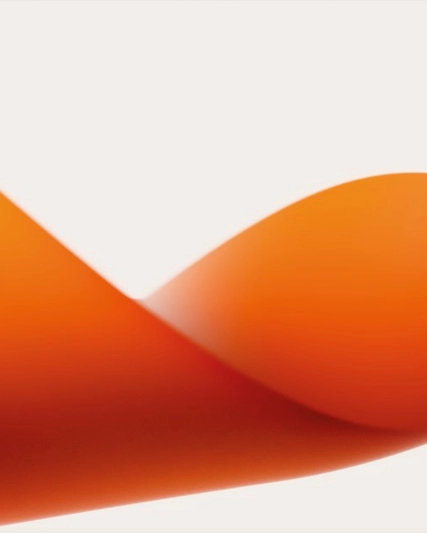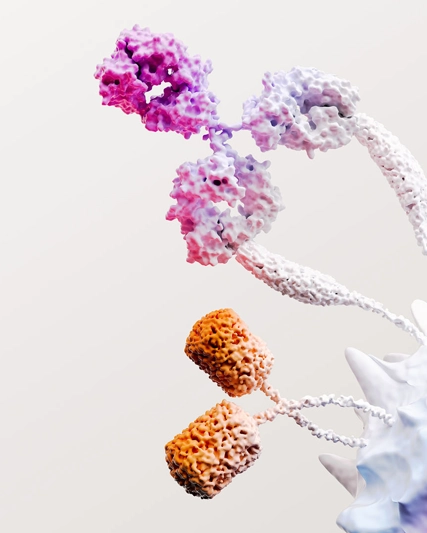Issued: London, UK
For media and investors only
GSK’s regulatory application for Shingrix for the prevention of shingles in at-risk adults aged 18 and over accepted for review by China National Medical Products Administration
- Shingrix already approved in China for adults aged 50 years and over
- Application could expand populations eligible to benefit from protection against shingles to include adults with an increased risk of the disease
- Approximately six million cases of shingles in China each year, with the incidence over three times higher for adults at increased risk compared to the general population
GSK plc (LSE/NYSE: GSK) today announced that the Center for Drug Evaluation (CDE) of the China National Medical Products Administration (NMPA) has accepted for review the regulatory application of Shingrix (Recombinant Zoster Vaccine or RZV) for the prevention of shingles (herpes zoster) in adults aged 18 years and over at increased risk.
Recombinant Zoster Vaccine (RZV) is a non-live, recombinant subunit adjuvanted vaccine given intramuscularly in two doses and was initially approved in 2019 by the NMPA to prevent shingles in adults aged 50 years and over.1–3
Globally, shingles will affect up to 1 in 3 people in their lifetime.4–7 A variety of factors can increase the risk of developing shingles, including advancing age and immunodeficiency or immunosuppression,8 as well as other chronic conditions such as COPD, diabetes, and asthma.9 It is estimated that there are approximately 6 million cases of shingles in China each year,10 with the incidence in people who are at increased risk, including people who are immunocompromised either due to disease or therapeutic treatment, being over three times higher than the general population.11
The NMPA application is informed by six clinical trials in patients aged 18 years and over who had undergone recent blood-forming cells (stem cell) transplantation, kidney transplant, or have blood cancer, solid tumour, or HIV.12–17
About shingles
Shingles is caused by the reactivation of the varicella-zoster virus (VZV), the same virus that causes chickenpox.4 A variety of factors can increase the risk of developing shingles, including advancing age and immunodeficiency or immunosuppression,8 as well as other chronic conditions such as COPD, diabetes, and asthma.9
Shingles typically presents as a rash, with painful blisters across the chest, abdomen, or face.18 The pain is often described as aching, burning, stabbing or shock-like.4 Following the rash, a person can also experience post‑herpetic neuralgia (PHN), a long-lasting nerve pain that can last weeks or months and can occasionally persist for several years.4 PHN is the most common complication of shingles, occurring in 5–30% of all shingles cases from findings in various studies.19
About Shingrix
Shingrix (Recombinant Zoster Vaccine or RZV) is a non-live, recombinant subunit vaccine indicated for the prevention of shingles in adults 50 and over. It combines an antigen, glycoprotein E, with an adjuvant system, AS01B, and may help overcome the natural age-related decline in responses to immunisation that contributes to the challenge of protecting adults aged 50 and over from shingles.1,2 RZV is not indicated to prevent primary varicella infection (chickenpox). In some countries, RZV is also approved for adults aged 18 years or over at increased risk for shingles. The use of RZV should be in accordance with official recommendations.
Please refer to the Product Information (PI) for important dosage, administration and safety information in China available at this link: https://www.gsk-china.com/media/6506/4-说明书-pdf-145m-ppc-0025427-v3-clean.pdf (PDF - 1,489KB)
About GSK
GSK is a global biopharma company with a purpose to unite science, technology, and talent to get ahead of disease together. Find out more at gsk.com.
Cautionary statement regarding forward-looking statements
GSK cautions investors that any forward-looking statements or projections made by GSK, including those made in this announcement, are subject to risks and uncertainties that may cause actual results to differ materially from those projected. Such factors include, but are not limited to, those described under Item 3.D “Risk factors” in the company's Annual Report on Form 20-F for 2022, and Q4 Results for 2023.
References
- Cunningham, A.L., et al. Efficacy of the Herpes Zoster Subunit Vaccine in Adults 70 Years of Age or Older. New England Journal of Medicine. 2016;375(11):1019–1032.
- The GSK proprietary AS01 adjuvant system contains QS-21 Stimulon® adjuvant licensed from Antigenics LLC, a wholly owned subsidiary of Agenus Inc. (NASDAQ: AGEN), MPL and liposomes.
- GSK. GSK announces approval of Shingrix in China for prevention of shingles in adults aged 50 and over. Available at: https://www.gsk.com/en-gb/media/press-releases/gsk-announces-approval-of-shingrix-in-china-for-prevention-of-shingles-in-adults-aged-50-and-over/. Last accessed: January 2024.
- Harpaz, R., et al. Prevention of herpes zoster: recommendations of the Advisory Committee on Immunization Practices (ACIP). MMWR Recomm Rep 2008;57(Rr-5):1-30.
- Shingles in Australia. Australian Institute of Health and Welfare [Available from: https://www.aihw.gov.au/getmedia/759199ff-f5c8-421d-a572-aaa984a02b49/aihw-phe-236_shingles.pdf.aspx Last Accessed: November 2023
- Lee, C., et al. Lifetime risk of herpes zoster in the population of Beijing, China. Public health in practice (Oxford, England). 2023;5:100356.
- Curran, D., et al. Meta-Regression of Herpes Zoster Incidence Worldwide. Infectious diseases and therapy. 2022;11(1):389–403. Stock-exchange announcement For media and investors only
- Chen S-Y, et al. Incidence of herpes zoster in patients with altered immune function. Infection. 2014; 42: 325–334.
- Marra F, et al. Risk Factors for Herpes Zoster Infection: A Meta-Analysis. Open Forum Infect Dis 2020;7(1):ofaa005.
- Zhang, Z., et al. The incidence of herpes zoster in China: A meta-analysis and evidence quality assessment. Human vaccines & immunotherapeutics. 2023;19(2):2228169.
- Zhenwei L, et al. Study on the risk of recurrence of herpes zoster in adults based on a retrospective cohort design. Zhejiang University of Traditional Chinese Medicine Conference.
- Bastidas, A., et al. Effect of Recombinant Zoster Vaccine on Incidence of Herpes Zoster After Autologous Stem Cell Transplantation: A Randomized Clinical Trial. JAMA. 2019;322(2):123–33.
- Vink, P., et al. Immunogenicity and safety of the adjuvanted recombinant zoster vaccine in patients with solid tumors, vaccinated before or during chemotherapy: A randomized trial. Cancer. 2019;125(8):1301–12.
- Dagnew, A.F., et al. Immunogenicity and safety of the adjuvanted recombinant zoster vaccine in adults with haematological malignancies: a phase 3, randomised, clinical trial and post-hoc efficacy analysis. The Lancet Infectious Diseases. 2019;19(9):988–1000.
- Stadtmauer, E.A., et al. A phase 1/2 study of an adjuvanted varicella-zoster virus subunit vaccine in autologous hematopoietic cell transplant recipients. Blood. 2014;124 (19):2921–2929.
- Berkowitz, E.M., et al. Safety and immunogenicity of an adjuvanted herpes zoster subunit candidate vaccine in HIV-infected adults: a phase 1/2a randomized, placebo-controlled study. The Journal of infectious diseases. 2015;211(8):1279–1287.
- GSK. Abstract on file.
- Mueller, N.H., et al. Varicella zoster virus infection: clinical features, molecular pathogenesis of disease, and latency. Neurologic clinics. 2008;26(3):675–697.
- Kawai, K., et al. Systematic review of incidence and complications of herpes zoster: towards a global perspective. BMJ open. 2014;4(6).


